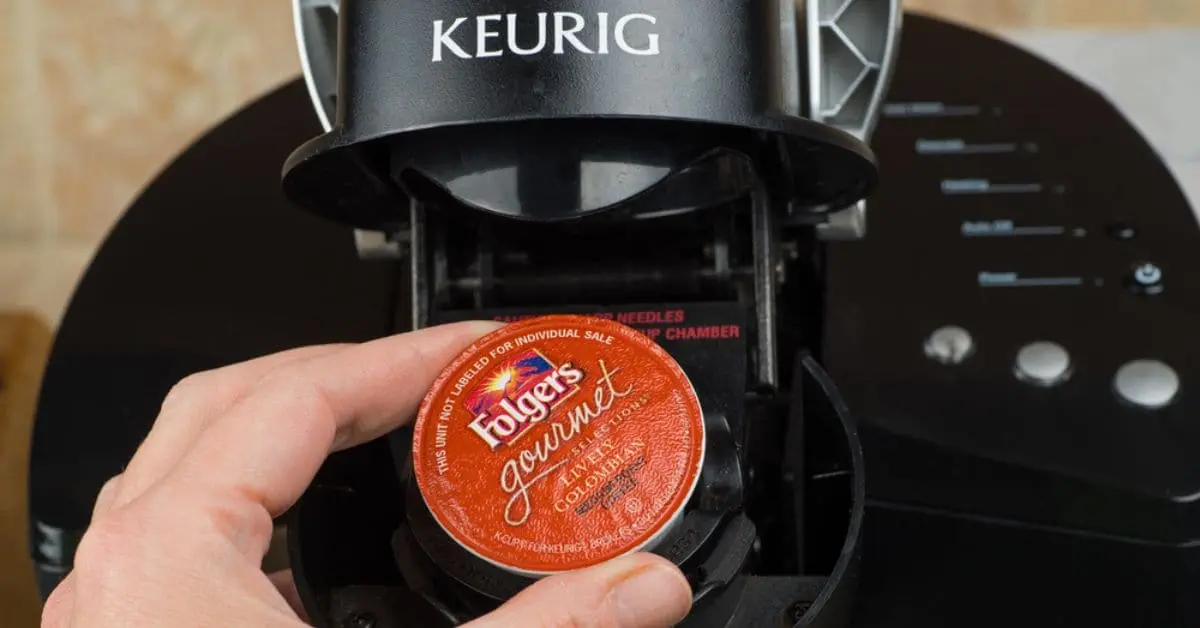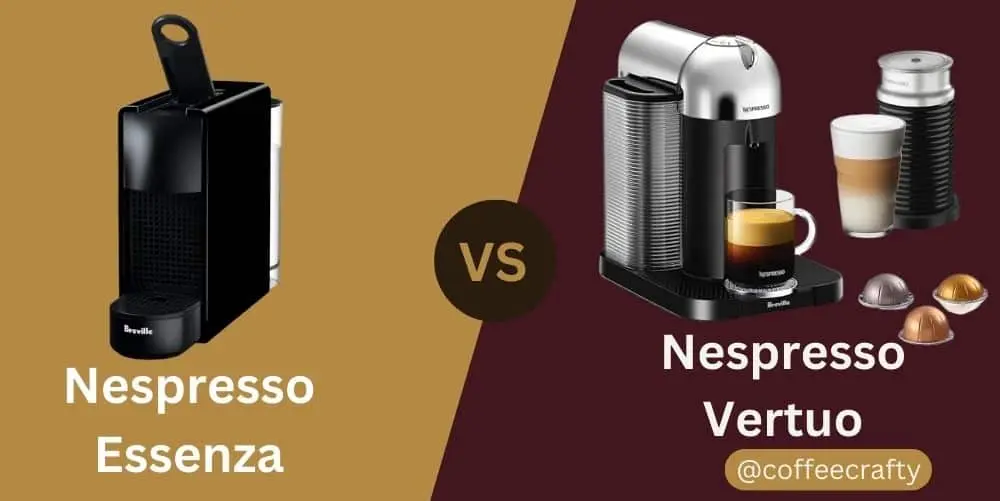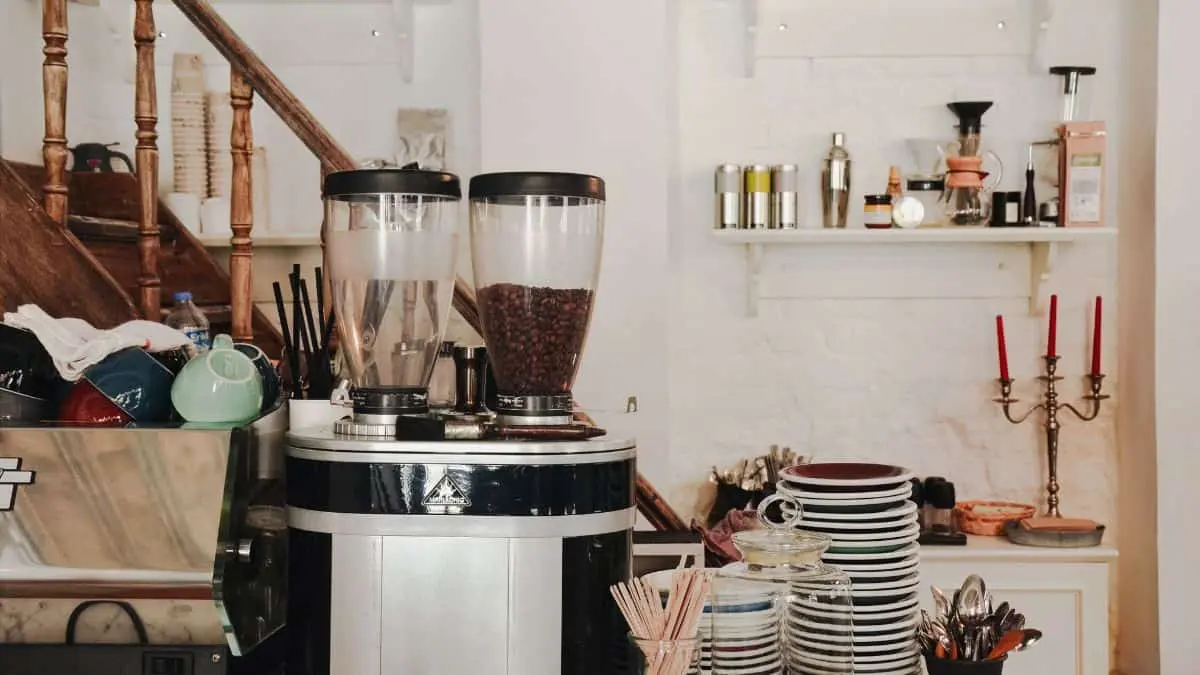Breville Grinder Making Loud Noise: How to Fix It
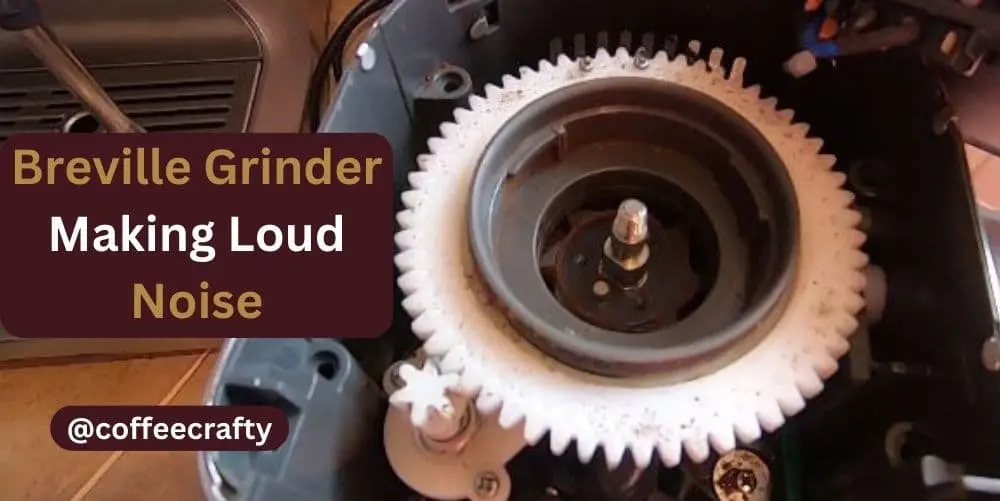
For coffee aficionados, the Breville Grinder is a cherished piece of equipment, known for its consistency and precision. However, if your grinder starts making loud noises, it can disrupt your morning routine and cause concern about potential damage.
This guide will help you understand the reasons behind the noise and provide practical solutions to restore your grinder to its smooth operation.
Common Causes of Loud Noises in Your Breville Grinder
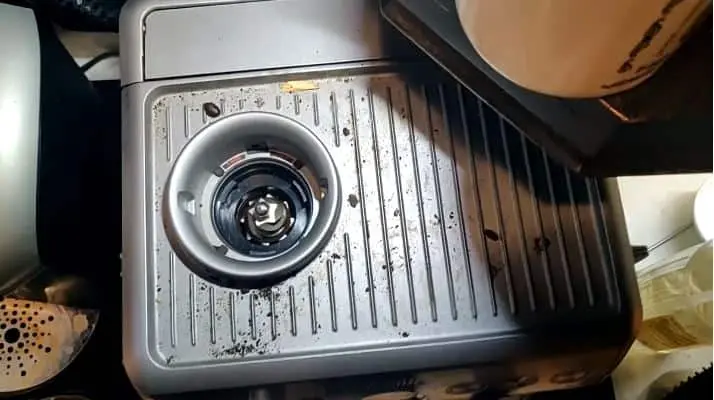
1. Foreign Objects in the Grinder
One of the most common reasons for a loud grinder is the presence of foreign objects, such as stones or twigs, mixed in with the coffee beans. These objects can get stuck in the burrs and cause a loud, grating noise.
Solution:
- Immediate Inspection: Turn off and unplug the grinder. Remove the hopper and check for any visible foreign objects.
- Cleaning: Use a brush to clean out any debris from the burrs and the surrounding area. If needed, use a vacuum to remove smaller particles.
2. Worn or Damaged Burrs
Burrs are essential components that grind the coffee beans. Over time, these burrs can wear down or become damaged, leading to unusual noises.
Solution:
- Inspection: Check the burrs for signs of wear or damage. If the burrs are dull or chipped, they will need to be replaced.
- Replacement: Contact Breville customer support or a trusted retailer to purchase replacement burrs. Follow the manufacturer’s instructions for replacing the burrs.
3. Incorrect Assembly
Improper assembly of the grinder parts after cleaning can also cause loud noises. Misaligned components can create friction and noise during operation.
Solution:
- Reassembly: Ensure that all parts are correctly aligned and securely assembled. Refer to the user manual for guidance on proper assembly.
4. Overloaded Grinder
Grinding too many beans at once can strain the motor, causing it to work harder and make louder noises.
Solution:
- Proper Loading: Only grind the recommended amount of beans as specified in the user manual. If you need to grind a large quantity, do it in smaller batches.
5. Lack of Maintenance
Regular maintenance is crucial for the longevity and performance of your grinder. Lack of cleaning can lead to buildup and clogging, which can cause noise.
Solution:
- Regular Cleaning: Clean the grinder regularly according to the manufacturer’s instructions. This includes cleaning the hopper, burrs, and grind chamber.
6. Motor Issues
If the motor is failing, it may produce unusual sounds. This can be due to wear and tear, overheating, or other internal issues.
Solution:
- Professional Service: If you suspect motor issues, it’s best to contact Breville customer support or take the grinder to a professional for inspection and repair.
Recommended Post: Breville Grinder Jammed? Get It Running Smoothly Again
Grind Size and Coarseness Adjustments
Regular maintenance and proper cleaning are key to keeping your Breville grinder performing at its best and minimizing noise issues. By following these maintenance practices, you can ensure a smoother and quieter coffee grinding experience:
Regular Cleaning Routines
Cleaning your grinder after each use prevents the buildup of coffee residues and oils, which can lead to irregular grinding and excessive noise. Here’s a simple cleaning routine to follow:
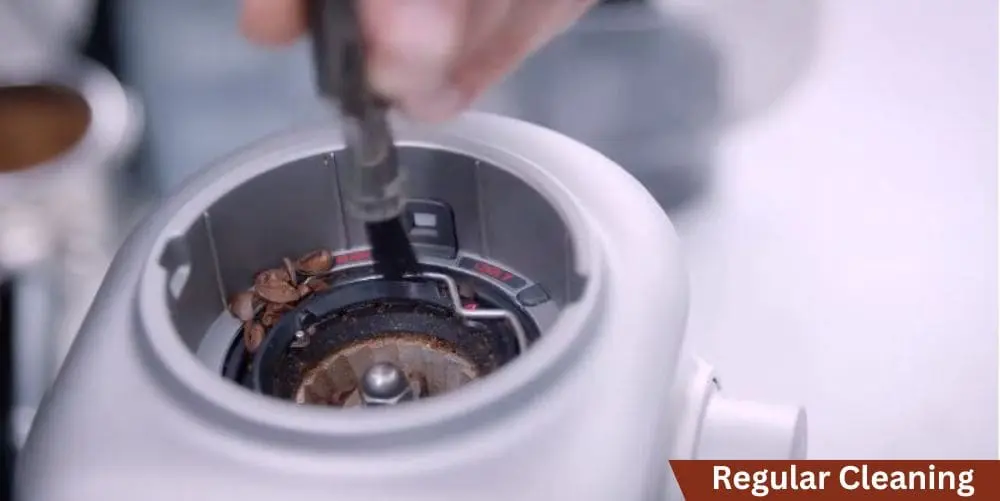
Daily Cleaning: After each use, remove the hopper and the burrs. Brush away any remaining coffee grounds and wash the hopper with warm, soapy water. Let it dry thoroughly before reassembling.
Weekly Cleaning: Once a week, perform a more thorough cleaning. Use a dedicated grinder cleaning brush to clean all nooks and crannies, including the chute and grind container.
Lubrication of Grinder Components
Keeping your grinder’s moving parts lubricated is essential for smooth and quiet operation. Apply a small amount of food-grade lubricant to the burrs’ rotating parts and other moving components as per your grinder’s manual.
Periodic Maintenance and Servicing
While regular cleaning is crucial, periodic maintenance by a professional technician is equally important. Consider getting your Breville grinder serviced at least once a year, especially if you use it frequently. This ensures that all internal components are in excellent condition, minimizing the risk of noise-related issues.
Addressing Static Electricity
Static electricity can lead to clumping and increased noise during grinding. To minimize static, try these tricks:
- Store coffee beans in a cool, dark place to maintain the right humidity.
- Tap the side of the grinder gently during grinding to release any static buildup.
- Consider using a grinder with anti-static features or accessories.
Avoid Excessive Heat
Running your grinder for extended periods or grinding large quantities of coffee at once can cause the motor to overheat. Let the grinder cool down between grinding sessions to prevent noise caused by an overheated motor.
Keep the Environment Clean
The space around your grinder can influence its noise levels. Avoid placing the grinder on a surface that amplifies vibrations, such as an uneven or hollow countertop. Use a sturdy and stable surface to reduce vibrations and noise.
Ongoing Care and Best Practices
Beyond troubleshooting and maintenance, adopting best practices for daily coffee grinding will not only improve the quality of your brew but also contribute to a quieter and more enjoyable experience. Let’s explore some essential tips to enhance the performance of your Breville grinder:
Grinding in Batches
Grinding coffee in small batches is preferable to avoid overloading the grinder and putting unnecessary strain on the motor. Smaller loads result in more consistent grinding and reduce the risk of overheating, ultimately contributing to a quieter operation.
Optimal Bean Storage
Properly storing your coffee beans is vital for maintaining their freshness and flavor. Invest in an airtight container to store your beans away from heat, light, and moisture. Avoid storing beans in the grinder’s hopper, as exposure to air can lead to flavor degradation and uneven grinding.
Regularly Checking for Wear and Tear
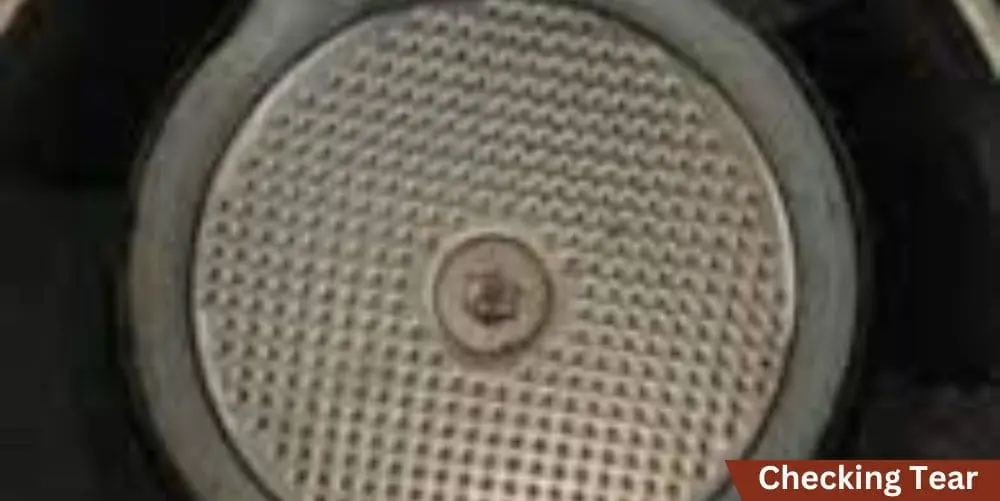
Periodically inspect your grinder for signs of wear and tear, including loose parts or damaged components. Tighten any loose screws or bolts and address any issues promptly to prevent further damage and noise.
Adjusting Grind Settings for Different Brewing Methods
Experiment with different grind settings based on your preferred brewing method. Coarser grinds work well for French press, while finer grinds suit espresso machines. Finding the ideal setting for each method reduces unnecessary noise and ensures optimal coffee extraction.
Noise Dampening Techniques
If you’re particularly sensitive to noise or share living spaces with others, consider placing your grinder on a noise-dampening mat or a folded kitchen towel. These simple adjustments can absorb vibrations and reduce noise transmission.
Regularly Cleaning the Chute and Spout
Cleaning the chute and spout that dispense ground coffee is crucial for preventing clogs and ensuring smooth grinding. Use a small brush or a vacuum to remove any coffee particles that may accumulate in these areas.
Upgrading Your Grinder
If you find that your current Breville grinder consistently struggles with noise issues despite following all maintenance steps, it may be time to consider an upgrade. Upgrading to a higher-end model with improved insulation and motor design can significantly reduce noise while providing additional features for precise grinding.
Professional Assistance and Repairs
If you’ve followed all the troubleshooting steps and noise issues persist with your Breville grinder, it may be time to seek professional assistance. Don’t fret; professional help can often resolve issues that are beyond your expertise. Here’s what you need to know:
Contacting Breville Support
If your grinder is still under warranty, the best course of action is to reach out to Breville’s customer support. They have a team of trained technicians who can assist you with specific troubleshooting steps and guide you through the process.
When contacting support, be sure to provide them with detailed information about the noise issues you’re experiencing, any patterns you’ve noticed, and the steps you’ve already taken to troubleshoot. This will help them diagnose the problem more efficiently and suggest the appropriate course of action.
Authorized Service Centers
If your grinder is no longer covered by the warranty or if the issue requires professional repair, Breville has authorized service centers where trained technicians can diagnose and fix the problem. These service centers have access to genuine Breville parts and are equipped to handle repairs according to the manufacturer’s standards.
Before taking your grinder to a service center, ensure you have all the necessary information and documentation, such as the grinder’s model number, purchase date, and details of the issue. This will expedite the repair process and ensure that your grinder is back in working order as soon as possible.
When to Seek Professional Help
While it’s admirable to troubleshoot and attempt to fix issues on your own, some problems require specialized knowledge and tools. Here are some signs that it’s time to seek professional help:
- Persistent and severe noise issues despite following all maintenance steps.
- Visible damage to critical components like the motor, burrs, or the hopper.
- Experiencing electrical problems or any unusual behavior during operation.
- Remember, attempting DIY repairs on a complicated appliance like a coffee grinder can lead to more damage or void the warranty. It’s better to leave intricate repairs to the experts.
Evaluating Repair Costs
Before proceeding with professional repairs, evaluate the cost of repairs in comparison to the price of a new grinder. If the repair costs are prohibitively high or the grinder is significantly aged, it might be more cost-effective to invest in a new, upgraded model.
Conclusion
A Breville grinder making loud noise can be a sign of various issues, from foreign objects and worn burrs to motor problems. By identifying the cause and applying the appropriate solution, you can restore your grinder to its optimal performance. Regular maintenance and proper use are key to preventing future issues and ensuring a long lifespan for your beloved coffee grinder.
For persistent problems, don’t hesitate to reach out to Breville customer support or a professional technician. With the right care and attention, your Breville grinder will continue to deliver the perfect grind for your coffee needs.

